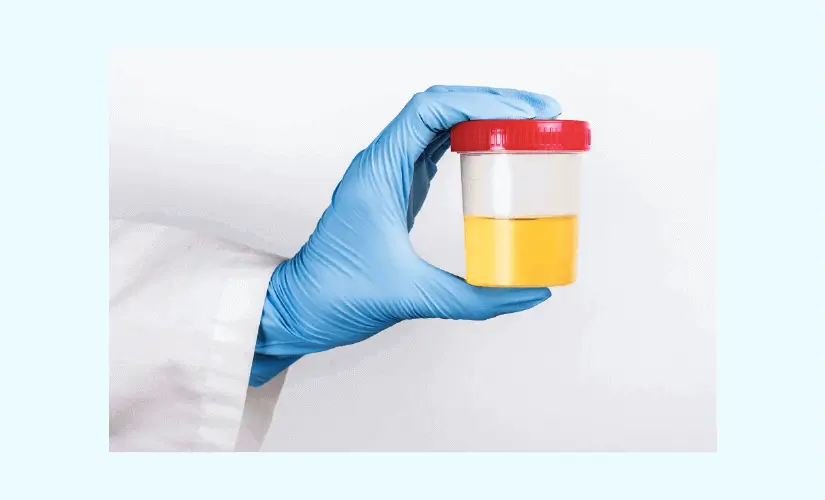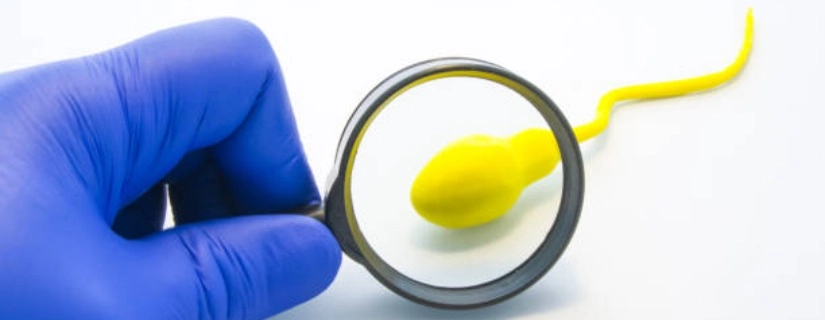-
Doctors
-
Specialities & Treatments
Centre of Excellence
Specialties
Treatments and Procedures
Hospitals & Directions HyderabadCARE Hospitals, Banjara Hills CARE Outpatient Centre, Banjara Hills CARE Hospitals, HITEC City CARE Hospitals, Nampally Gurunanak CARE Hospitals, Musheerabad CARE Hospitals Outpatient Centre, HITEC City CARE Hospitals, Malakpet
HyderabadCARE Hospitals, Banjara Hills CARE Outpatient Centre, Banjara Hills CARE Hospitals, HITEC City CARE Hospitals, Nampally Gurunanak CARE Hospitals, Musheerabad CARE Hospitals Outpatient Centre, HITEC City CARE Hospitals, Malakpet Raipur
Raipur
 Bhubaneswar
Bhubaneswar Visakhapatnam
Visakhapatnam
 Nagpur
Nagpur
 Indore
Indore
 Chh. Sambhajinagar
Chh. SambhajinagarClinics & Medical Centers
Book an AppointmentContact Us
Online Lab Reports
Book an Appointment
Consult Super-Specialist Doctors at CARE Hospitals
Pus Cells in Urine (Pyuria): Symptoms, Causes, Normal Range & Treatment
Updated on 13 September 2023

Table of Content
- What Is Pus Cells in Urine (Pyuria)?
- What Causes Pus Cells in Urine?
- Pus Cells in Urine Symptoms
- Who is affected by Pyuria?
- Treatment of Pus Cells in Urine
- Diagnosis
- Pus Cells in Urine Treatment at Home
- How can we prevent Pyuria?
- What are the normal ranges of pus cells in urine?
- Complications of Pyuria
- When to See a Doctor?
- FAQs
Pus cells in urine, known as pyuria, can be a concerning sign that requires attention. In this comprehensive guide, we will know what pyuria is, its underlying causes, symptoms, who it affects, and the available treatment options.
What Is Pus Cells in Urine (Pyuria)?
Pus cells in urine, or pyuria, refer to the presence of an abnormally high number of white blood cells (WBCs) in the urine. While a few WBCs are typically present, an elevated count can indicate an underlying infection or inflammation.

What Causes Pus Cells in Urine?
Pyuria can be caused by various factors, including urinary tract infections (UTIs), kidney infections, sexually transmitted infections (STIs), bladder infections, and even kidney stones. Identifying the underlying cause is crucial for effective treatment.
Pus Cells in Urine Symptoms
The most common symptoms of pyuria involve urine that appears cloudy or contains pus.
When pyuria is caused by a urinary tract infection (UTI), you may experience:
- Pain in the side (flank), abdomen, or pelvic region.
- Pressure in the lower pelvis.
- Frequent need to urinate (increased frequency).
- Sudden urges to urinate (urgency).
- Involuntary leakage of urine (incontinence).
- Painful urination (dysuria).
- Presence of blood in the urine (hematuria).
- Fever.
- Nausea and vomiting.
Who is affected by Pyuria?
Pyuria can affect people of all ages and genders. Those with compromised immune systems, diabetes, kidney problems, or a history of UTIs are more susceptible.
Treatment of Pus Cells in Urine
Early detection, prompt treatment, and effective management are crucial for preserving urinary health when pus cells are detected in urine.
- Antibiotics are typically prescribed for bacterial infections identified through urine tests. These drugs target and eliminate the bacteria causing the infection, restoring normal urinary function.
- Antifungal medications are recommended for cases where pus cells result from fungal infections. These medications target the fungus responsible and aid in restoring a healthy urinary tract.
- Lifestyle adjustments and preventive measures also play a key role in managing and preventing pus cells in urine. These include staying adequately hydrated, maintaining good personal hygiene, avoiding irritants like harsh soaps and scented products in the genital area, and minimizing exposure to potential allergens.
Diagnosis
Diagnosing pyuria involves analyzing a urine sample to determine the presence of elevated white blood cells. Your doctor may recommend additional tests to identify the specific cause.
Pus Cells in Urine Treatment at Home
Drinking plenty of water, maintaining proper hygiene, and avoiding irritants can support recovery. However, consulting a healthcare professional is essential for accurate diagnosis and treatment.
How can we prevent Pyuria?
To prevent pyuria (the presence of pus in the urine), you can follow these steps:
- Maintain Good Hygiene: Practice good genital hygiene, especially after using the toilet. For females, wiping from front to back after urination can help prevent bacteria from entering the urinary tract.
- Stay Hydrated: Drink plenty of water throughout the day to flush out bacteria from the urinary tract and maintain proper urine flow.
- Urinate Regularly: Avoid holding urine for long periods, as this can increase the risk of bacterial growth in the urinary tract.
- Avoid Irritants: Limit the consumption of irritants such as caffeine, alcohol, and spicy foods that can potentially irritate the bladder and urinary tract.
- Wear Breathable Clothing: Choose underwear and clothing made from breathable materials to prevent moisture buildup in the genital area, which can promote bacterial growth.
- Take Probiotics: Probiotics, found in yoghurt or as supplements, may help maintain a healthy balance of bacteria in the gut and urinary tract.
What are the normal ranges of pus cells in urine?
It is normal to have a small number of pus cells in a urine sample. The normal range of pus cells observed under a high-power microscope differs slightly between males and females. In males, the normal count is typically less than 4 cells per high power field (HPF), while in females, it is usually between 5 to 7 cells per HPF. An increased number of pus cells can cause visible changes in the urine, making it appear thick and cloudy, similar to pus. If you notice changes in the texture or color of your urine, you should consult a doctor.
Complications of Pyuria
Pyuria is considered normal in certain individuals, but when linked to underlying health issues, it can result in complications such as:
- Sepsis
- Preterm birth or low birth weight in pregnant women
- Recurrent urinary tract infections (UTIs)
- Kidney failure
When to See a Doctor?
If you experience persistent symptoms of pyuria, such as pain, discomfort, or changes in urine appearance, it is advisable to consult a doctor promptly.
By understanding the causes, symptoms, and treatment options for pus cells in urine, you can take proactive steps towards better urinary health and overall well-being. Always consult a healthcare professional for proper diagnosis and personalized guidance.
FAQs
1. Can pus in urine be prevented?
Maintaining good hygiene and staying hydrated can help reduce the risk of pyuria.
2. Is pus cells in urine normal?
A few pus cells are normal, but an elevated count may indicate an issue.
3. What does it indicate if pus cells are high in urine?
Elevated pus cells may indicate a urinary tract infection or inflammation that requires medical attention.
4. Is blood in urine harmful?
Elevated pus cells indicate an underlying issue that should be addressed to prevent complications.
5. How can you reduce pus cells in urine?
Maintaining proper hygiene can aid recovery from a urinary tract infection and following prescribed treatments can help in treating the underlying cause.
6. What are the pus cells in the urine normal range?
A normal range of pus cells varies but generally ranges from 0-5 cells/ HPF in a urine examination.
7. What food should I avoid for pus?
To help manage pus cells in urine, it's advisable to avoid foods that can potentially irritate the urinary tract or exacerbate infections. This includes:
- Spicy foods: Spicy foods can sometimes irritate the urinary tract and may worsen symptoms.
- Sugary foods and beverages: Excessive sugar intake can potentially worsen infections by feeding bacteria.
- Alcohol: Alcohol can irritate the bladder and exacerbate urinary symptoms.
- Caffeine: Caffeine is a diuretic and can increase urine production, potentially aggravating symptoms.
8. Can I remove pus cells naturally?
While certain lifestyle changes and home remedies may support urinary health, the removal of pus cells typically requires medical treatment, especially if caused by infections. Natural approaches that may complement medical treatment include:
- Drinking plenty of water: Staying hydrated can help flush out bacteria and promote urinary tract health.
- Consuming probiotics: Probiotics can help maintain a healthy balance of bacteria in the body, potentially supporting urinary health.
- Maintaining good hygiene: Proper hygiene practices can help prevent infections that lead to pus cells in urine.

ENQUIRY FORM
SELECT CATEGORIES
-
Neurosciences (16)
-
Neurology (37)
-
Neurosurgery (14)
-
Orthopaedics (48)
-
Oncology (33)
-
Obstetrics and gynecology (51)
-
Pulmonology (23)
-
Urology (20)
-
Nephrology (13)
-
Psychiatry (7)
-
Dietetics and Nutrition (111)
-
General Medicine (63)
-
Cardiac Sciences (30)
-
Vascular & Endovascular Surgery and Interventional Radiology (10)
-
Gastroenterology (46)
-
Endocrinology (23)
-
Plastic Surgery (10)
-
Critical Care Medicine (5)
-
COVID-19 (16)
-
Dermatology (16)
-
Emergency Care (1)
-
Ophthalmology (4)
-
Pediatrics (14)
-
Laparoscopic and Bariatric Surgery (8)
-
ENT (15)
-
Kidney Transplant (1)
-
Liver Transplantation and Hepatobiliary Surgery (5)
-
General Surgery (3)
-
Internal Medicine (5)
-
Medicine Information
What Foods Cause Kidney Stones?
How to Lower Uric Acid Levels Naturally?
YOU MAY ALSO LIKE
RECENT BLOGS
-

Direct Anterior Approach in Total Hip Replacement: Advantages and Challenges
10 April 2025
Read More
-

Zinc Deficiency: Signs and Symptoms, Causes, Treatment
9 April 2025
Read More
-

Chest Pain When Coughing: Causes, Treatment and Home Remedies
9 April 2025
Read More
-

12 Health Benefits of Eating Mushrooms
8 April 2025
Read More
-

7 Health Benefits of Blood Donation You Should Know About
8 April 2025
Read More
-

Implantation Bleeding Vs Periods: Know the Difference
28 February 2025
Read More
-

Bloating During Ovulation: Symptoms, Causes and Remedies
28 February 2025
Read More
-

Itching During Dengue: Causes, Treatment and Home Remedies
18 February 2025
Read More
Have a Question?
If you cannot find answers to your queries, please fill out the enquiry form or call the number below. We will contact you shortly.


















